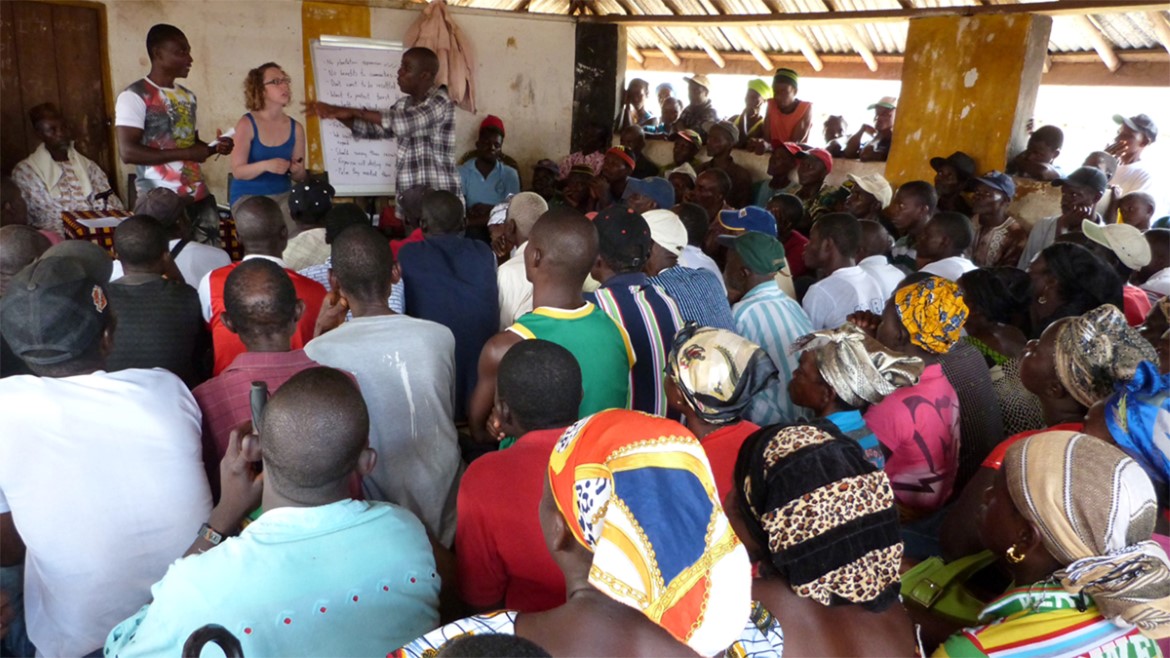
Accelerating land tenure reforms
Organization
Rights and Resources Initiative (RRI)Recognizing that tenure insecurity constitutes a major impediment to the realization of REDD+ and other development priorities, RRI will engage key constituencies, including governments, leading climate initiatives, and the private sector to accelerate the legal recognition of customary forest and land rights held by Indigenous Peoples, local communities, and women, as enabling conditions for successful REDD+ implementation and sustainable development.
Why
Insecure land and forest rights are a major constraint to successful REDD+ implementation.
With over 2 billion people who live in and/or are dependent on forests for their livelihoods, it is clear that the rights of forest communities, the future of forests themselves, and the success of climate change mitigation efforts are all intertwined.
In 2014, RRI analysis revealed a noticeable slowdown in the recognition of tenure rights from 2008-2013, despite the implementation of REDD+ initiatives in 28 of 33 countries surveyed.
This slowdown occurred despite the fact that tenure insecurity is now widely regarded as a major barrier to effective REDD+ implementation, as noted in almost all country REDD-Readiness Proposals as well as during the 2013 Oslo REDD+ Exchange, which placed the importance of tenure ahead of both the UNFCCC negotiations and the creation of an international carbon market.
Budget
NOK 30 million, from 2016-2020.
What
Mobilize knowledge, networks, and capacity to engage key stakeholders in support of REDD+ tenure reforms.
Operating through the unique multiscale, multi-sectoral, and multi-locational structure of the RRI Coalition of Partners and Collaborators, the project aims to sustain the required shift towards the recognition of tenure rights as a necessary prerequisite for effective REDD+ implementation.
To this end, the project will:
- support national coalitions to better assess, strategize, and advocate the need for clearer strategies to address tenure insecurity in national REDD+ programs;
- monitor and analyze tenure trends relative to climate commitments and related policy reforms, and disseminate this information through strategic engagements with key constituencies;
- support private sector leadership with their application of globally recognized tenure-based governance standards, and the adoption of due diligence tools to reduce tenure risks and pressures on forests;
- develop strategic analyses of climate commitments, programs, and funding streams that will inform RRI-convened multi-stakeholder dialogues to advance community forest rights at the national and global levels;
- call for stronger and a more effective application of REDD+ safeguards at global and national levels; and
- respond to strategic opportunities and policy windows to affect change.
Expected results
- The legal recognition and enforcement of forest land rights for Indigenous Peoples, local communities, and women are accelerated in five priority REDD+ countries;
- RRI’s independent global monitoring and strategic analyses of climate-related forest tenure issues are leveraged by key REDD+ constituencies, including Indigenous Peoples, governments and progressive private sector actors to support the recognition of indigenous and community forest land rights in climate policies and investments; and
- Influential private investors and companies commit to international standards and practices that recognize tenure rights, and work with governments, civil society, Indigenous Peoples, and local communities to resolve land governance issues, reduce conflict, improve local livelihoods, and reduce deforestation.
Partners
- CED
- CIFOR
- Civic Response
- FECOFUN
- FPP
- Forest Trends
- HELVETAS
- IFRI
- PRISMA
- RECOFTC
- Samdhana Institute
- Tebtebba
- ICRAF
About the project descriptions
The project descriptions give insight in the NICFI portfolio for civil society organisations supported by Norad.
The descriptions presented are written by the project partners. Only minor edits have been undertaken by Norad. Their presentations and conclusions do not necessarily reflect the views of Norad.
